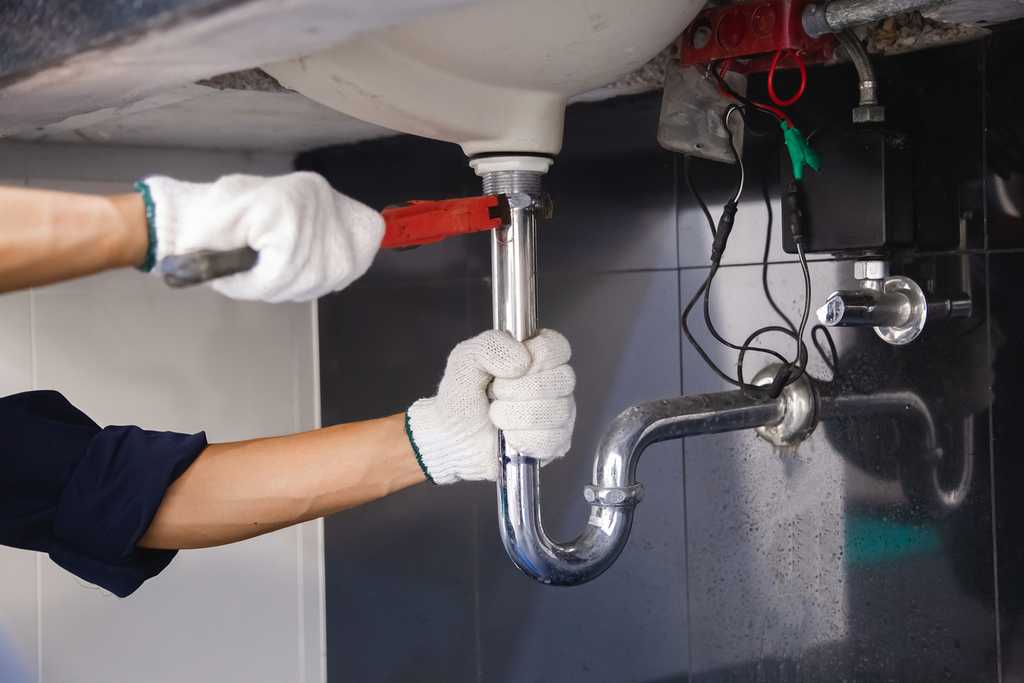Homeowners insurance is made to protect property owners from a wide range of perils, and it can kick in to cover financial losses when a covered event takes place. For example, home insurance can be a lifesaver if a home is damaged or destroyed by a fire or a tornado, and it can also pay for liability coverage when a visitor is hurt and seeks damages as a result.
There are also plenty of gray areas when it comes to homeowners insurance, mostly because some items are only covered in certain situations. For example, those wondering if home insurance covers plumbing will find that the answer to this question is far from cut and dry.
Generally speaking, you should know that a traditional homeowners insurance policy does not cover basic plumbing issues that pop up. However, some policies from the best homeowners insurance companies can cover certain plumbing mishaps and events that cause considerable damage to your home.
Key Takeaways
- Homeowners insurance does not cover regular plumbing issues that result from wear and tear, such as leaky pipes.
- That said, homeowners insurance can cover sudden breakdowns of a plumbing system that lead to considerable water damage in a home.
- Several types of homeowners insurance coverage can come into play in the event of sudden, accidental events regarding a home's plumbing system.
- If you have a leaking pipe, the last thing you should do is ignore it. Instead, take steps to fix the leak or call a plumber right away.
Does homeowners insurance cover plumbing and leaks?
According to Farmers and other major insurance providers, most homeowners insurance policies do not cover issues resulting from plumbing maintenance or everyday leaks. After all, you are expected to perform basic maintenance on all the components of your home, including its plumbing system.
This means slow leaks that become a problem over time won't be covered by homeowners insurance. With that in mind, all homeowners should do their best to uncover and repair any slow leaks they find before considerable damage occurs.
In the meantime, plumbing issues caused by negligence or failure to protect a home's plumbing system are also denied coverage. The same is true for sewer backups and flooding, unless the homeowner buys add-on coverage for these issues.
Simply put, basic homeowners insurance does not cover the following plumbing problems:
- Wear and tear of a plumbing system
- Negligence
- Sewer backup
- Flooding
How does homeowners insurance cover plumbing and water damage?
While basic plumbing maintenance issues are not covered by a traditional homeowners insurance policy, there are some plumbing issues that can qualify. According to Farmers, the main purpose of homeowners insurance is to "cover damage caused by sudden, accidental events like a storm, fire or falling objects." This means surprise events that lead to water damage can be covered by a homeowners insurance policy.
Whether certain events are covered or not depends on what took place and the problems that led to the damage in the first place.
Dwelling coverage
The first type of homeowners insurance protection that can apply to plumbing comes in the form of dwelling coverage. This component of homeowners insurance protects the structure of the home, as well as appliances that are inside. Other coverages apply to pipes, walls, ceilings and more.
If a pipe suddenly bursts in your home and causes water damage to walls and floors, your dwelling coverage may apply.
Personal property coverage
Personal property coverage applies to your personal belongings, and it can help repair or replace them if a covered event leaves them damaged or ruined.
If a bursting pipe damages or destroys your furniture, clothing, electronics and other property, your personal property coverage may apply.
Additional Living Expenses (ALE) coverage
This type of insurance coverage can pay for another place to live while your home is being repaired or rebuilt. For example, it can pay for hotel stays and meals on a temporary basis if a sudden plumbing issue has made your home uninhabitable.
Other structures coverage
This insurance coverage applies to other buildings or structures on a property, such as garages and sheds. If a covered plumbing event leads to damage to these other structures, this kind of protection can prove valuable.
Personal liability coverage
Homeowners insurance policies also come with personal liability coverage that protects the property owner against certain types of liability claims. If a plumbing issue in the policyholder's home causes damage to a neighbor's property, for example, liability coverage could help pay for repairs.
Additional plumbing insurance for you to consider
If you want to increase your odds of having water-related damage in your home covered by homeowners insurance, there are two optional coverage options you can consider.
- Flood insurance: Flood insurance can cover damages caused by flooding in your home that is caused by extreme weather events. This coverage is often required for homeowners who live in a floodplain, yet it can be purchased as optional coverage if not.
- Water backup coverage: Many homeowners opt to purchase water backup coverage as part of their homeowners policy since this coverage can pay for damages if a drain backs up in their home. Water backup coverage can also apply if a sump pump fails and water damage occurs.
What to do if you have a leaking pipe
If you have a leaking pipe in your home, you should never ignore it. Doing so only increases the chances of water damage that will not be covered by homeowners insurance. After all, we already mentioned how damages caused by leaking pipes are not typically covered by home insurance. Also note that slow leaks can cause considerable water damage that may be unseen, such as damage to floor joists or the foundation of a home.
If you're handy and knowledgeable about plumbing, you may be able to repair or replace the pipe yourself. You can even find information on common repair methods online, such as this resource from Home Depot. According to the home superstore, you may be able to repair a leaky pipe with plumbers tape, self-fusing silicone tape, epoxy putty, or a patch and a clamp.
That said, most homeowners will be a lot better off calling a professional plumber who can accurately diagnose the plumbing issue and make necessary repairs.
How to file a plumbing insurance claim
If you do wind up with a plumbing problem that is likely covered by homeowners insurance, the steps involved in filing a claim vary from company to company. For example, many insurance providers let homeowners begin a claim online or using their mobile app. Most companies also start claims over the phone or in person if you have a local agent.
As you prepare to file a plumbing insurance claim, you should document the issue by taking photos of the damage that occurred. You should also do your best to minimize further damage, such as making temporary repairs to a pipe or turning the water off to your home.
In the meantime, reach out to a contractor in order to determine the extent of the damage and potential costs for repairs. It's possible your insurance company will send out a contractor to assess the damage as well.

